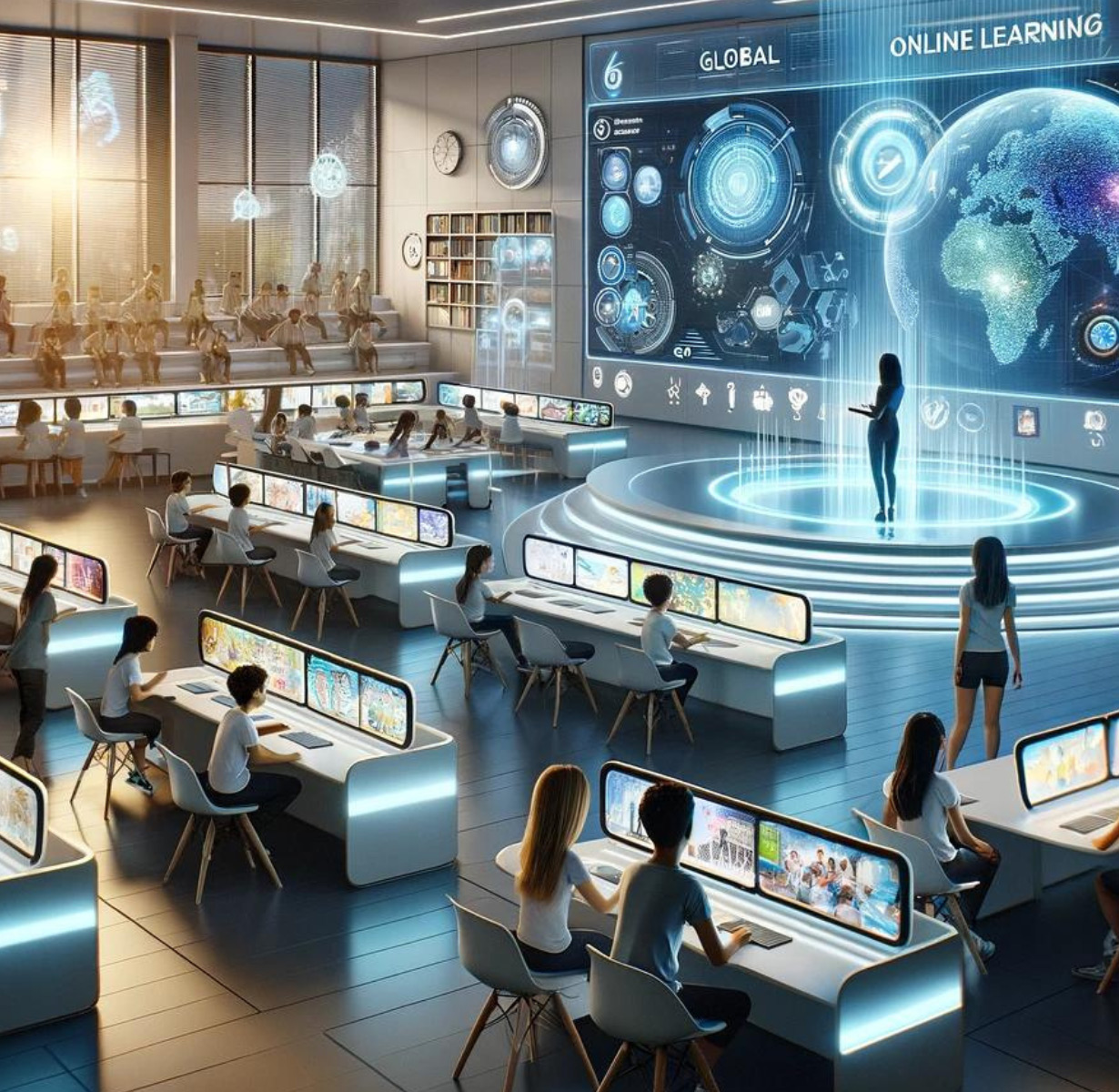
The Future of Education: How Online Learning is Shaping Tomorrow’s Classroom
- Posted by admin
- Categories Education Tech
- Date February 25, 2024
Introduction
The educational landscape is undergoing a significant transformation, with technology leading the way. Online learning has become the primary mode of instruction, offering flexibility, accessibility, and personalized learning experiences. This shift is reshaping the classroom of tomorrow with the integration of cutting-edge technologies like Virtual Reality and Artificial Intelligence in digital classrooms.
The Rise of Online Learning
The proliferation of the internet and mobile devices has made education accessible to millions worldwide, removing geographical and time constraints. Online platforms offer courses ranging from basic literacy to advanced degrees, making lifelong learning a tangible reality for a broader demographic. This democratization of education is a cornerstone in the foundation of the future classroom.
Virtual Reality Immersive Learning Environments
Virtual Reality (VR) is a revolutionary tool in online learning, allowing students to experience learning in a way that traditional methods cannot. It simulates real-world environments or creates immersive realms, enhancing engagement and retention. For example, in history lessons, students can walk through ancient Rome streets, or in biology classes, they can explore the human body from the inside.
Artificial Intelligence Personalized Learning Paths
AI is set to revolutionize online education by offering personalized learning experiences, allowing tutoring systems to adapt to each student’s learning pace, style, and preferences. It can also automate administrative tasks, allowing educators to focus on teaching. AI-driven analytics can predict student performance, enabling early intervention and ensuring no student is left behind.
Collaborative and Social Learning
The future of online education also lies in fostering a sense of community and collaboration among learners. Digital platforms are increasingly incorporating social features, such as discussion forums, group projects, and peer reviews, to mimic the social interaction of traditional classrooms. These features enhance learning and build a network of peers and professionals that can be invaluable for future opportunities.
Challenges and Considerations
Despite its potential, the shift towards online learning is not without challenges. Issues such as the digital divide, screen fatigue, and the need for self-discipline can hinder the online learning experience. Moreover, the quality and accreditation of online courses still need to be improved for many. Addressing these challenges requires a concerted effort from educators, technology developers, and policymakers to ensure that online education is accessible, engaging, and respected as a legitimate form of learning.
Looking Ahead
Online education is set to revolutionize the future by integrating VR and AI into digital learning platforms. This technological advancement will change how we learn, expand access to education, and break down barriers, opening up new possibilities for learners worldwide.
In conclusion, the future of education is bright, with online learning at its heart. By embracing technology and its potential to enhance learning, we can ensure that education is more accessible, engaging, and effective for everyone. The classroom of tomorrow will be a blend of tradition and innovation, where technology complements the human touch of teaching, creating an enriched learning environment for all.
#FutureOfEducation #OnlineLearning #DigitalClassroom #EducationalTechnology #VirtualRealityInEducation #AIInEducation #PersonalizedLearning #ImmersiveLearning #LifelongLearning #EdTechTrends#GlobalEducation
Previous post
Designing for Diversity: Creating Inclusive Online Learning Experiences
Next post



